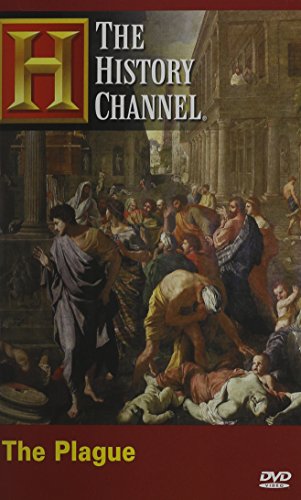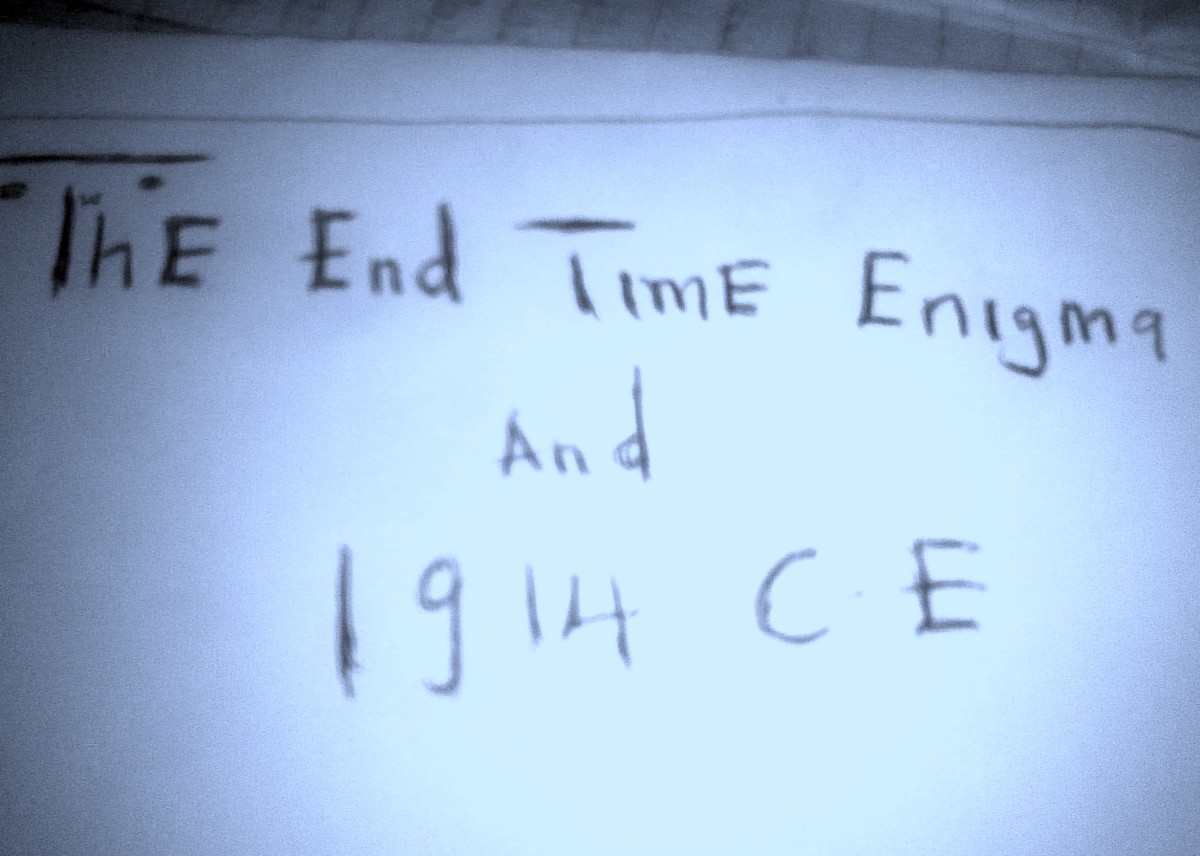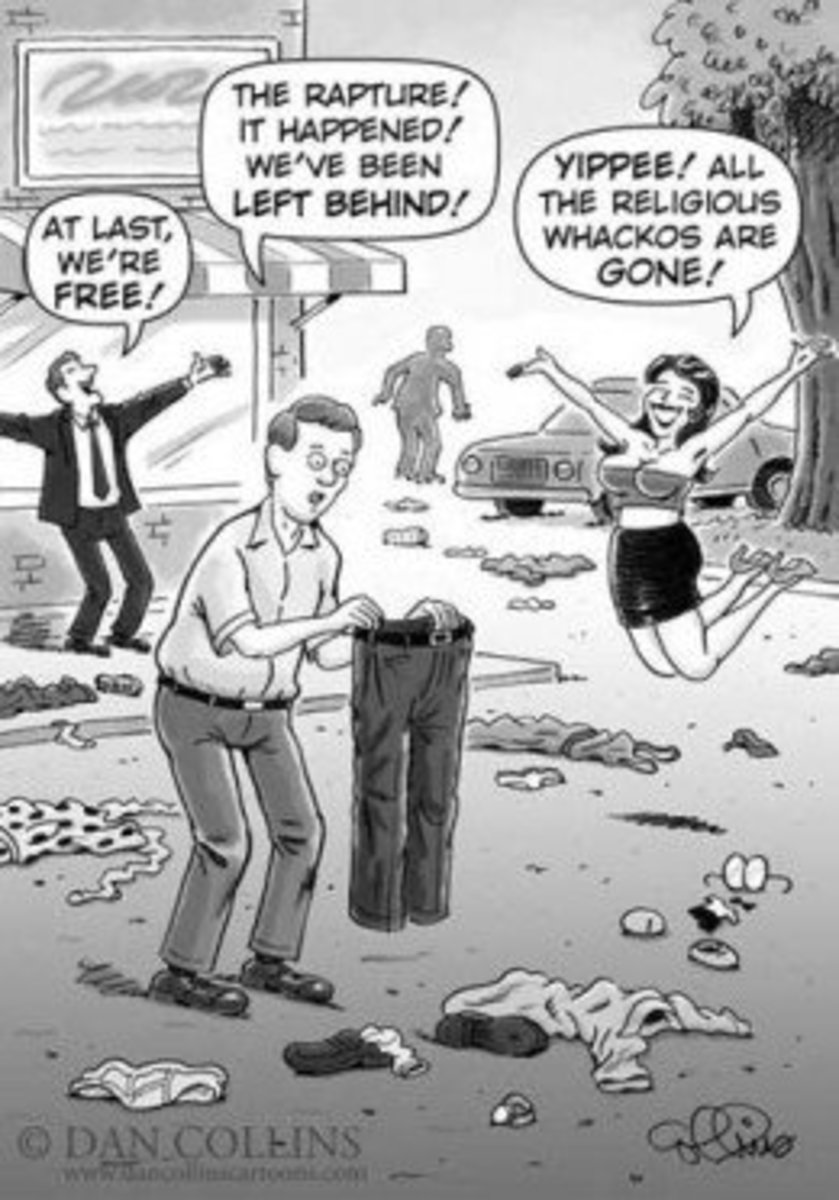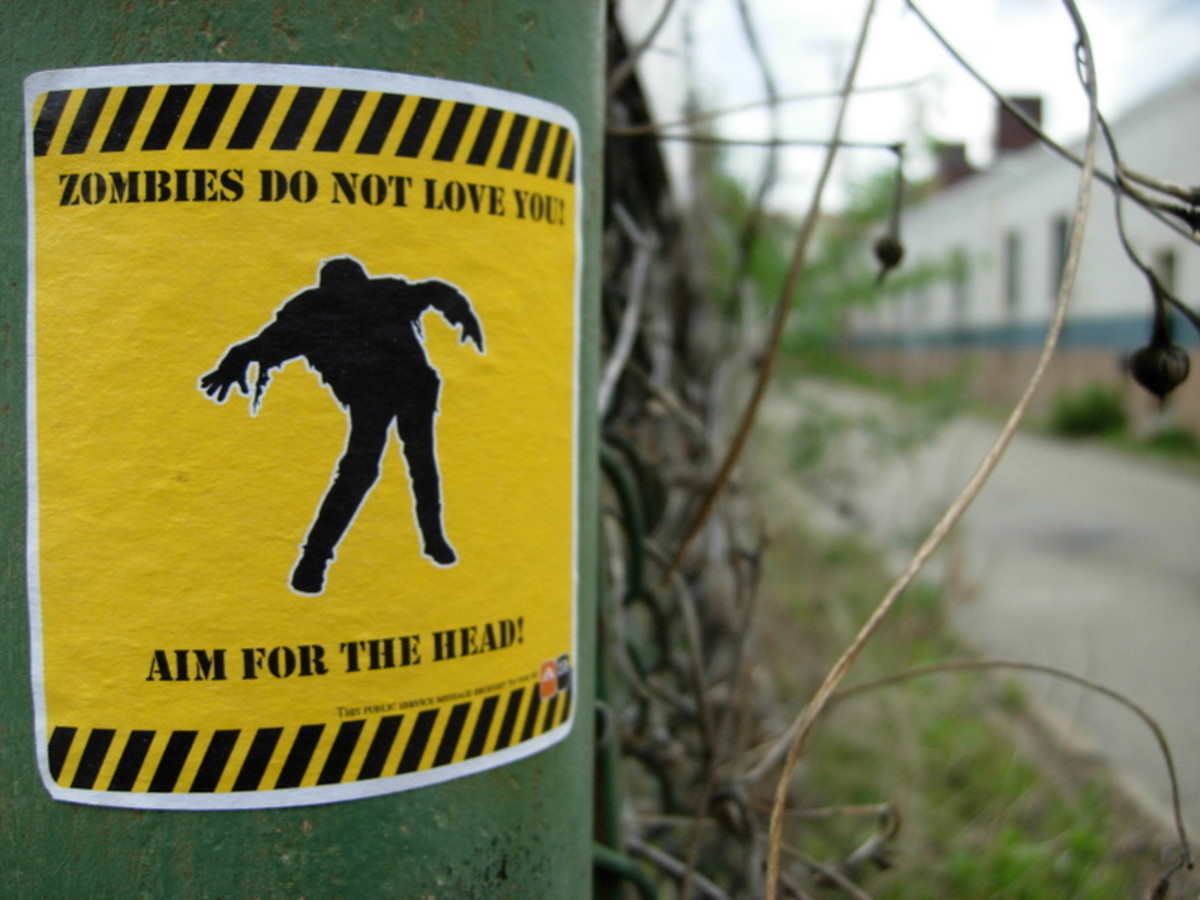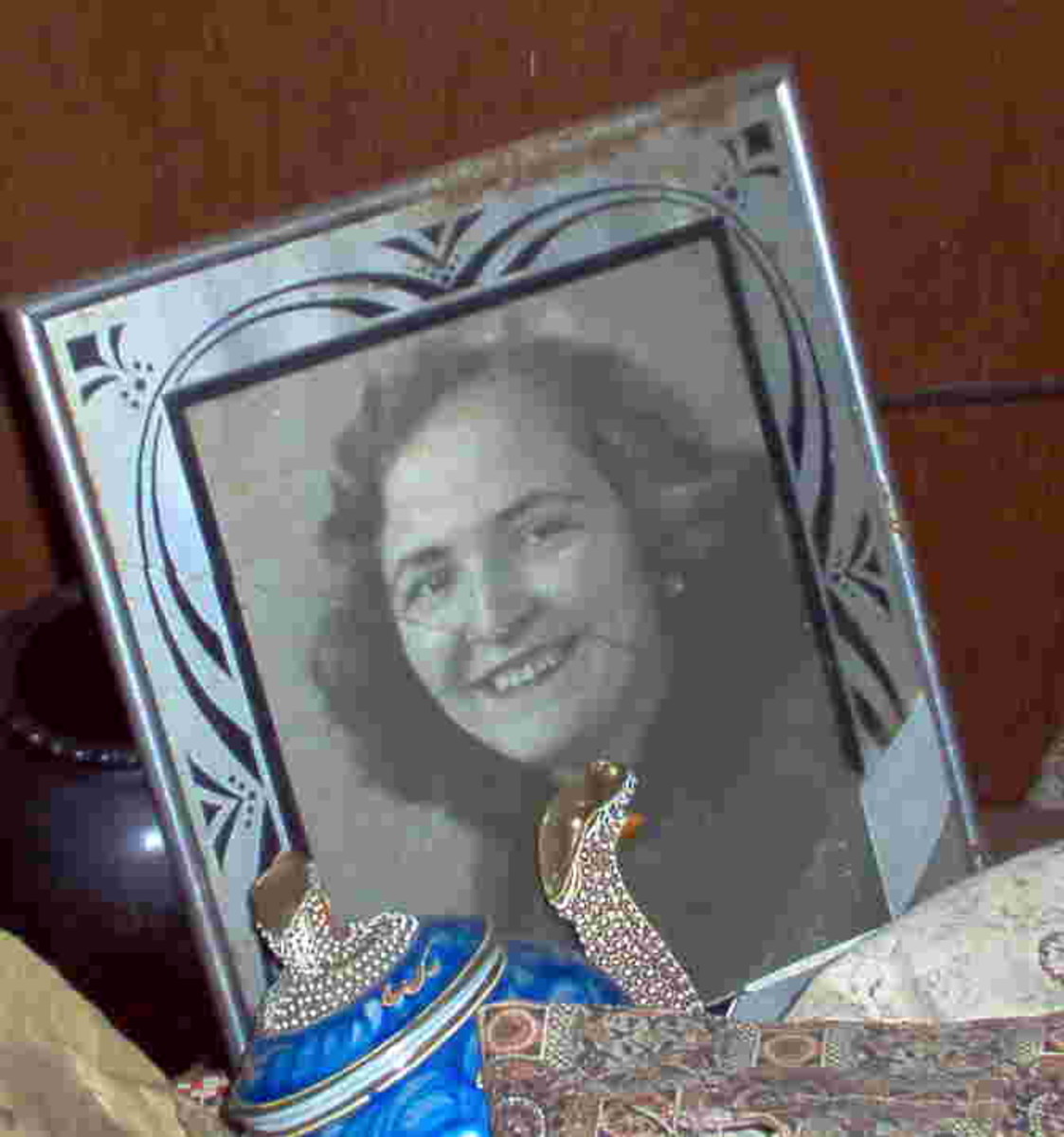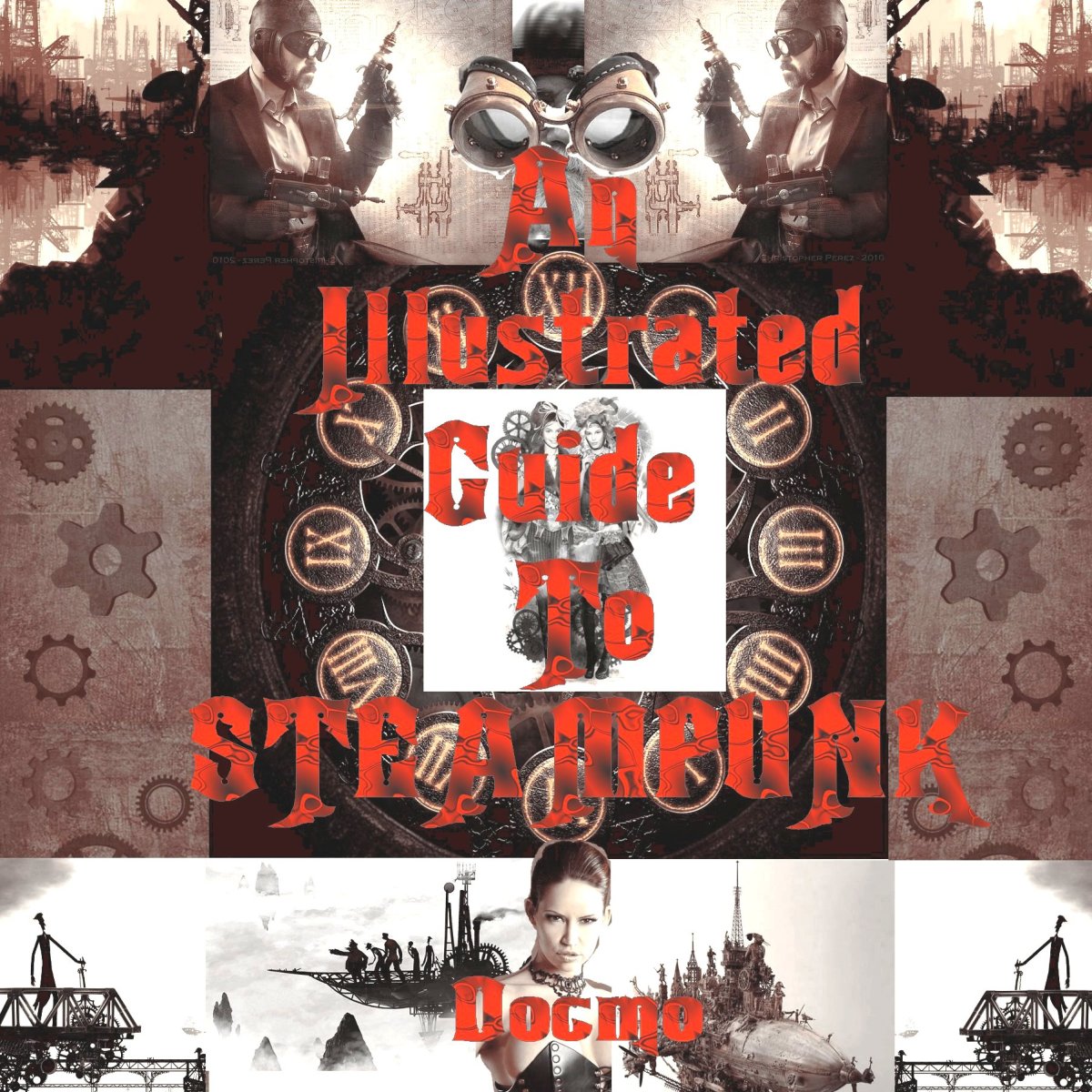- HubPages»
- Books, Literature, and Writing»
- Books & Novels»
- Fiction»
- Science Fiction & Fantasy Books
The Public's Fascination With A Post Apocalyptic World
Why are so many people in the world so fascinated with post apocalyptic themes such as the ones in TV shows, books and movies?
Zombie Apocalypse
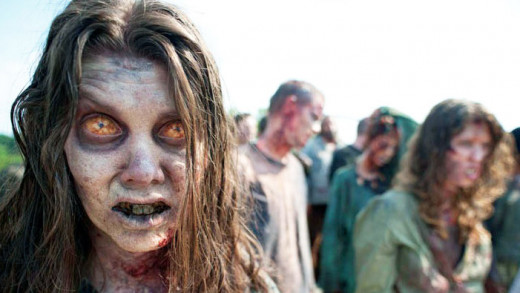
Alien Invasions
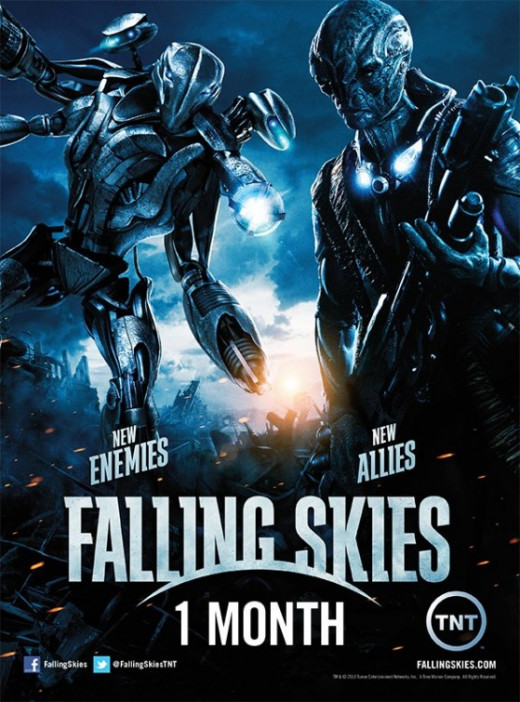
The End of the World As We Know It
Lately there has been a fascination with post apocalyptic scenarios in literature as well as cinema and TV shows, one that started after with the Book of Revelations and gained momentum with the new millennium and the end of the Mayan calendar in 2012 but despite the fact that those predictions by the Mayans and people such as Nostradamus, Sir Isaac Newton and Black Elk have not come to pass yet and the year 2012 has come and gone, post apocalyptic scenarios continue to be popular themes for fictional works of literature and film with movies such as “Mad Max”, “The Day After Tomorrow”, “Resident Evil”, and “World War Z”, TV shows such as “The Walking Dead”, “Falling Skies”, “Revolution” and “Jericho” and books such as, Nevil Shute’s “On the Beach”, Tom Moody’s “Hater” series, Steven King’s “The Stand”, George Orwell’s “1984” and Dean Koontz’s “The Taking”. The genres these fictional stories take range from action/adventure to science fiction and horror and social/political commentaries.
A World Under Seige

A Society Without Law or Order
Even now that 2012 has come and gone, people are still fascinated with a post-apocalyptic world but what’s behind the fascination? In books such as Tom Moody’s “Hater” series, it becomes apparent early on that people are bored with their mundane existence and at first the main character, Danny McCoyne, revels in his new life, living free and fiercely killing anyone who gets in his way. The new order of things is a pleasant change but soon he begins to get tired of an uncertain future of little food and constant fighting and only wants to retire to an abandoned dwelling he’s made into a home to lose himself in mindless pulp fiction and romance novels. His life becomes nothing more than a struggle to survive. All of the glamour of those early days is gone and he merely exists, struggling to stay out of people’s way and avoid the wrath of the new leader of his tribe of “Haters”.
Freedom From Law Enforcement
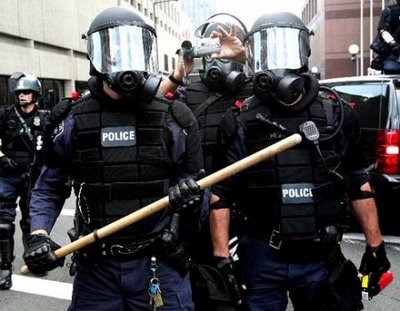
Freedom from the Mundane World
Could this be what’s behind the fascination, a sense of boredom people have of living in a world where every day is the same, no excitement and no danger beyond what they see on their favorite TV shows or the reports of deadly conflicts in other countries that they see on the news? Do people wonder how it would be to have the freedom to live in a world with no laws, no police, no governments, survival of the fittest or is it just a fascination with danger and horror that they will only have to experience in their imaginations, never really believing for a second that they would actually be able to survive in such a world, the same way people are fascinated with a car or train wreck, looking on in amazement and glad that it didn’t happen to them?
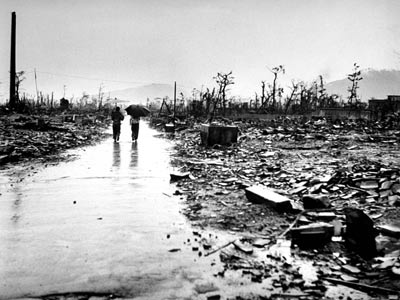
Nuclear Destruction
In spite of the recent surge of movies, TV shows and books on this subject, “end times” theories have been around for long while. The devastation that reigned down on Hiroshima and Nagasaki at the end of the WWII, by atomic bombs that the U.S. had dropped brought that possibility into clear focus. The Cold War, a period of time when both the U.S. and Russia had nuclear capabilities and we had drills in our public schools where we ducked under our desks in preparation for a possible nuclear bomb landing on our class room made us aware of just how easily such a thing could happen. Today that threat is even greater than before with more rogue nations holding the key to nuclear destruction. The attacks on the World Trade Center towers on September 11, 2001 brought that fear home and made us all reconsider the possibilities of total destruction on our planet and the bank failures that followed in 2008 made us aware of just how delicate the financial stability was world wide and how easy it could be to throw the whole thing into chaos, causing world wide poverty, lawlessness and destruction.
Nuclear Fallout
The first book that I can think of that created a fictional scenario of the world coming to an end was “On the Beach”. Published in 1957, a little over a decade after the atom bomb had desecrated Hiroshima and Nagasaki, It had a very profound effect on people. “The world would not go out with a bang but a whimper,” is the quote by T.S. Eliot at the beginning of the novel. I remember my mother telling me how depressed some people got after reading the book because most had lived through both the Depression and WWII. It was too close to home. Instead of survivors roaming the land in search of gasoline in a Mad Max type of environment, most of the survivors in “On the Beach” drank and had sex or just glumly waited for the nuclear fallout to eventually snuff out their lives. There are no major conflicts and no heroes, just people waiting for the end.

Big Brother Is Watching
Contrast that to the autocratic world of “1984” where every movement is watched by Big Brother and the protagonist, Winston Smith, works revising historical documents to support the party line. This is a world that is divided into three nations that are in a perpetual state of war. A world where the government does everything to squash any individuality in either thought or deed. A world whose citizens are under constant surveillance. A world where Smith feels he is the only one who thinks something is wrong till he meets a woman who ends up betraying him in the end. No one’s life is altered much because the ruling class keeps every one in order by constant surveillance and the threat of dire consequences should they step out of line.

When the Lights Go Out
In the post apocalyptic world of the TV series “Revolution”, where the entire world has lost electricity, we see the splintering of the United States into territories and ruled by militias. We see one man who led a boring, mundane life as an insurance appraiser, a man with little power who had to kowtow to the whims of his manager, suddenly get the chance to live the life of a major in the Monroe Militia where he has power and exhibits a kind of ruthlessness he never got to experience before the power went out and the status quo no longer existed. Before the power went out, an MIT graduate, a man who had all of the social status and money as a top computer programmer suddenly loses all of his power and has to live under the thumb of people with the muscle and ruthlessness he does not possess. A total reversal of fortunes that occurs when the electricity is no longer available and the world changes. One man gives up his mundane existence and gains power, the other loses his social status and his influence on society.

The Walking Dead
In “The Walking Dead”, a former pizza delivery guy ends up fighting zombies and becomes a scout for the group of survivors in the series, eventually winning the love of a beautiful woman he probably would never had met otherwise. A former clerk working a job where he was managed by a man much younger and in his own eyes, inferior than he becomes the “Governor” of a group of survivors living in a fortified town and wields the kind of power he never got a chance to experience in his former mundane existence. A former police officer lives in a world where he has to make choices that go against the grain of his previous, ethical life. In each of these stories, people’s lives are changed and in some cases, freedom and power are gained while for others, life becomes a struggle just to survive.
The Black Plague
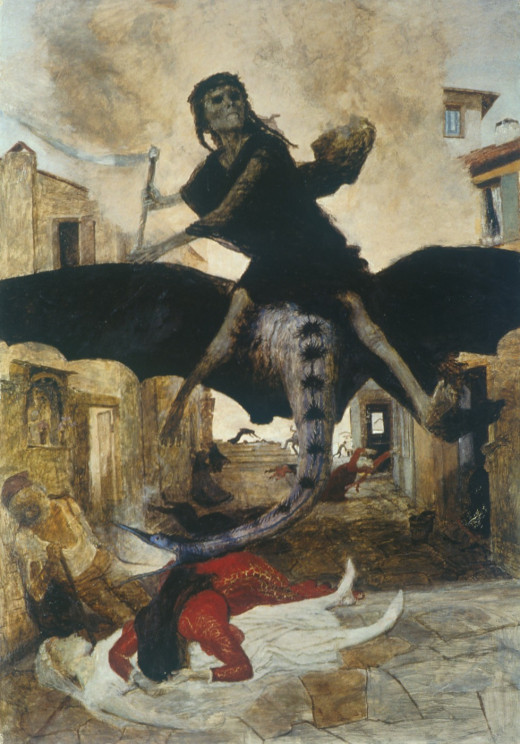
Ancient Prophecies
We can even go back to the Book of Revelations and the Quatrains of Michele de Nostrodame (Nostradamus) to see that predictions of future apocalypse has never been far from the public’s mind and incidents such as the Black Plague and the military conquest of Attila the Hun, only led people to feel that “The End” was never far away from being realized and we can see how such events caused major changes in society. After the Black Plague we saw the beginning of a middle class as the power structure collapsed and land and buildings previously under the control of the elite, were taken over by the survivors and northern invaders called Vikings, who terrified the "God fearing" Christians, later increased trade routes and the flow of merchandise.

The New Millennium
We see today how the attacks of September 11, 2001 and the bank failures of 2008 have brought about a change in the way we live and travel. No longer can we enter an airport without heightened security or the constant threat of terrorism. No longer can we rely on our nest egg, our bank savings or our 401K to guarantee us financial security in our retirement years. It changes how we live and who we are.
How Would We React?
The question then continues to be, "What is the fascination?" Is it the thrill of living in a world with no laws, survival of the fittest? Is it the horror of it all, watching terrifying images of a world dominated by zombies or controlled by monstrous aliens from outer space? Or is it just the satisfaction at seeing how politics and society have crumbled under their own weight of hubris, seeing the decay that politicians and corporations have brought on themselves through their own greed? How would we change should a real apocalypse occur? What kind of people would we become? Would we become ruthless in our new found freedom or would we become one of the meek, doing whatever we had to in order to survive? Would we sell out or sell ourselves short? Would we meet the challenge of surviving in a new world or would we just give up and party on the last dregs of a civilization in demise? Would we go out with a bang or with a whimper?






